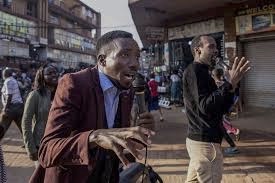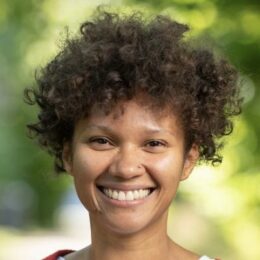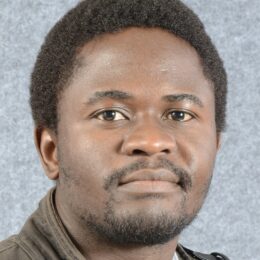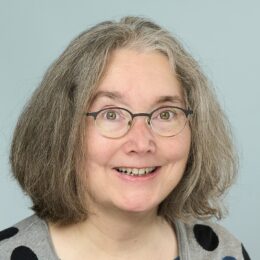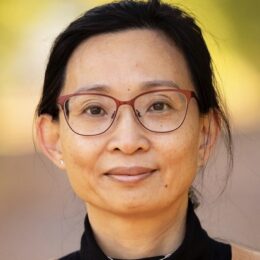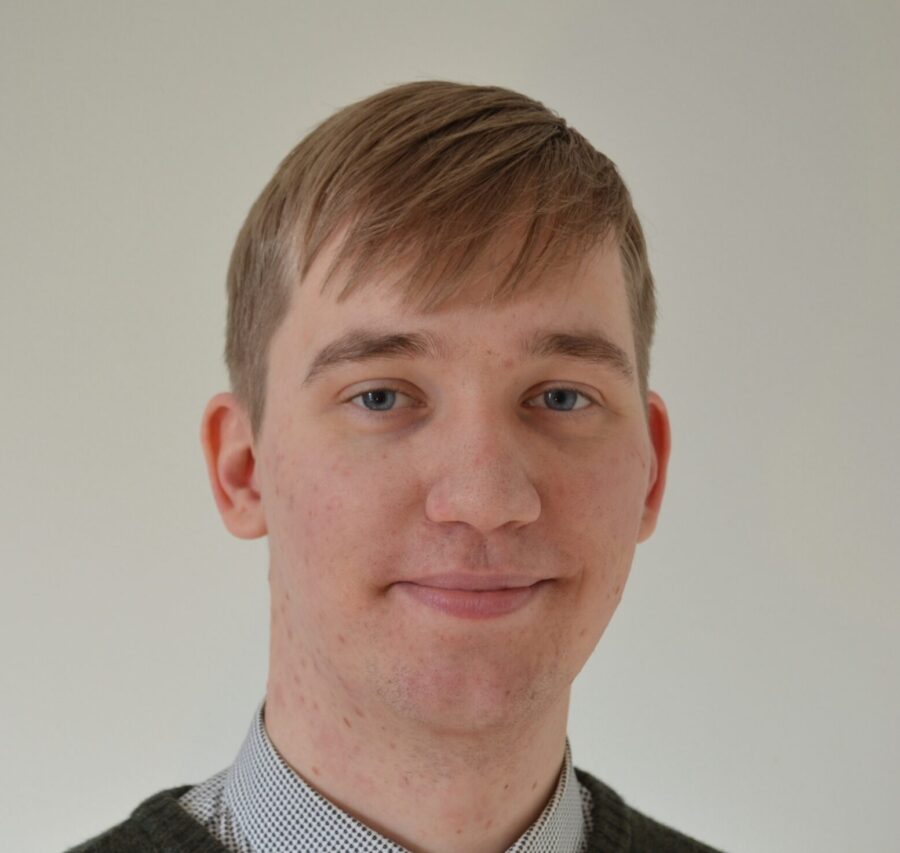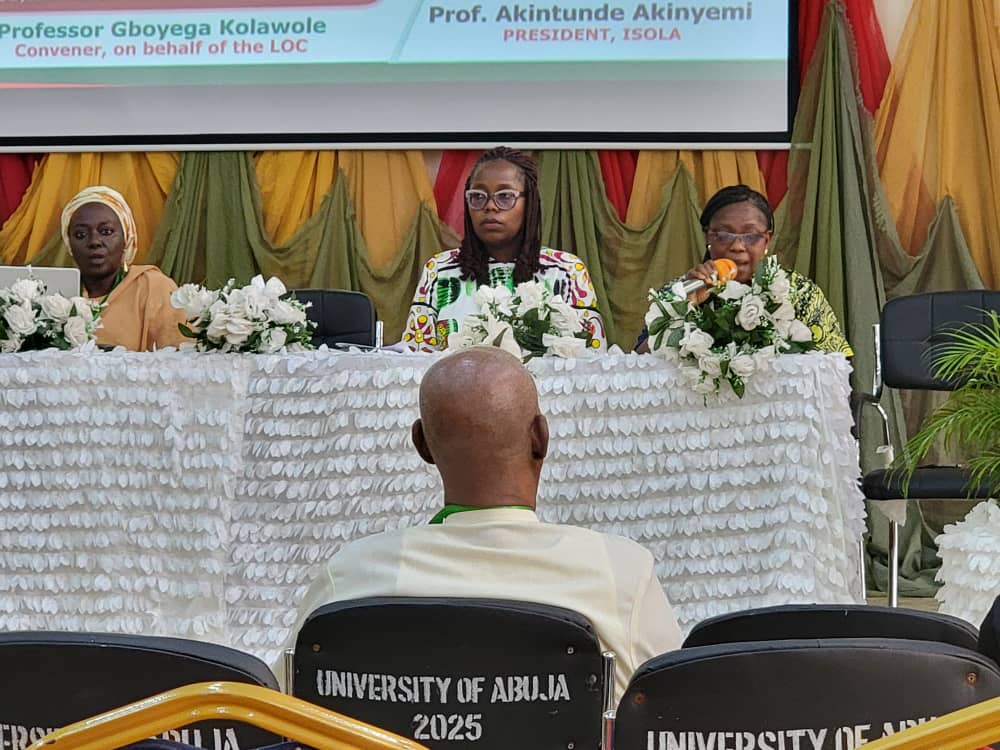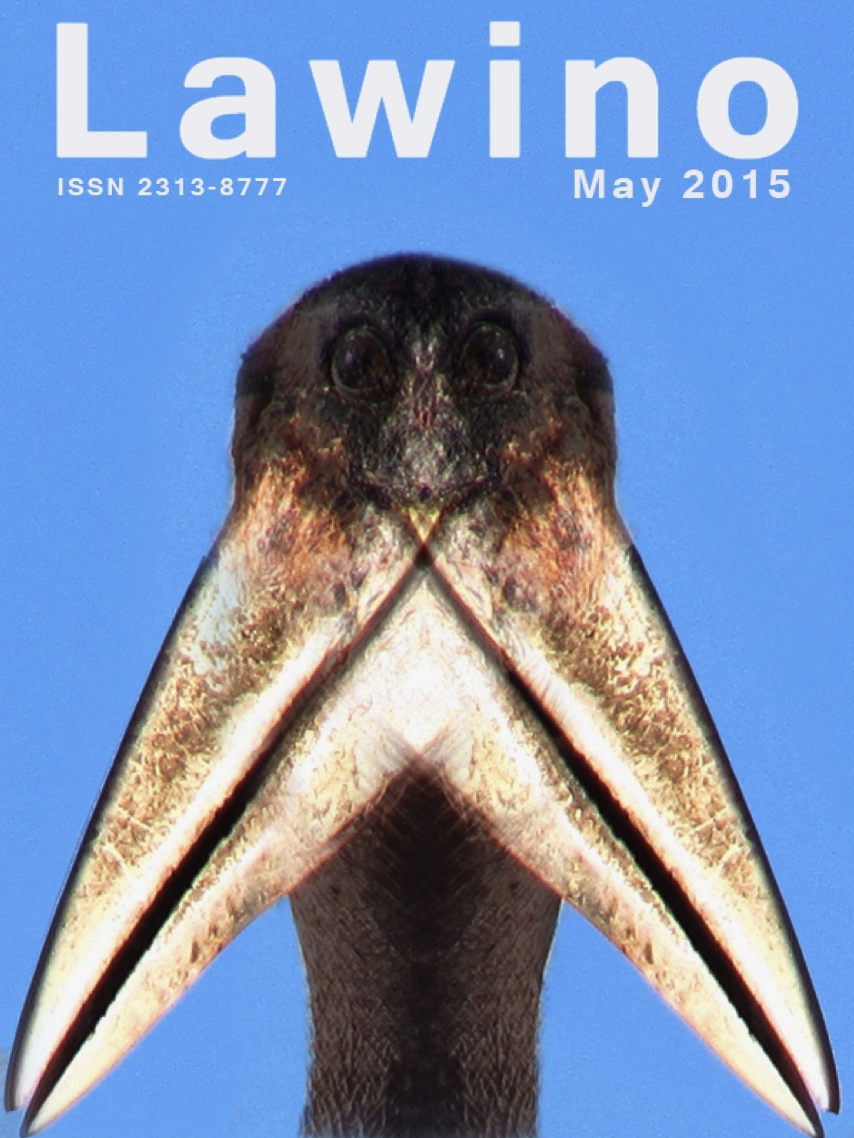Our team
Principal Investigator
Ashleigh Harris is Professor of English at Uppsala University and team leader of the ALMEDA project. She works on Zimbabwean and South African literature, as well as print and online ephemeral literatures from across the sub-Saharan continent. In addition to writing a monograph on the history of African literary metadata, she will run case studies relating to 19th century and mid-20th century print in Southern Africa, as well as digital ephemeral forms. She also works closely with information specialist, Ursula Oberst, and research engineers, Dann Wu and Adam Main, on the ALMEDA ontology and repository.
Postdoctoral Researchers
Gloria Ajami Makokha completed her PhD in Literary Studies at Kenyatta University in 2022. Gloria’s postdoctoral research will focus on Swahili oratory cultural forms in East Africa, paying particular attention to the coastal regions of Kenya and Tanzania.
Oulia Adzhoa Sika Makkonen completed her PhD in World Christianity and Mission Studies at Uppsala University in 2022. Oulia’s postdoctoral research will focus on Kotéba Popular Theater in Mali and Côte d’Ivoire. Oulia will also be involved in archival work on French colonial catalogues.
Case Study Researchers
Erik Falk, PhD, is a researcher at Vetenskap och Allmänhet (Public and Science), a non-profit organization aiming to promote dialogue across research in all fields and various publics. Within the project, Erik will make two case studies on the production, circulation, and consumption of literature in Uganda and Botswana. Central to the studies are the relation between informal and formal book production and the entrepreneurial activities of authors and publishers. Using both quantitative and qualitative data collection methods, the studies will discuss how authors engage to make their work findable and visible to readers, how literary actors engage in activities to spread their work, and how readers find and access literary forms and texts of choice.
Nicklas Hållén is Associate Professor at Karlstad University, Sweden. He currently has a STINT-funded project with colleagues at Machakos University, Kenya and was previously part of the four-year African Street Literature research project, based at Uppsala University and funded by the Swedish Research Council. Hållén’s contribution to ALMEDA will look at ephemeral literature in Nairobi, written or composed primarily in Sheng – a mix of English and Swahili spoken primarily by young working-class Nairobians. He will further be working on a variety of online forms, including self-published books and graphic novels, from across the continent.
Doseline Kiguru is Lecturer in World Literatures in English at the University of Bristol. Her research engages with African literary platforms such as publishing and prize industries, book fairs and festivals, literary magazines and writers’ organisations. Doseline’s case-study focuses on the history of the movement of stories and language across different geographical and historical periods in East Africa. Extending beyond the colonial library, the study attends to long histories of writing, publication, and cataloguing in Kiswahili from pre-colonial to contemporary times. Doseline’s research also contributes to the case study on Sheng, an informal urban vernacular. She considers the historical and contemporary politics between formal (Kiswahili) and informal (Sheng) languages and how these contribute to the invisibility of data on informal and ephemeral literary networks.
Pedzisai Maedza is an Assistant Professor at University College Dublin, Ireland. He is an Intercultural Performance Scholar and Theatremaker. He holds a split-site PhD from the University of Cape Town, South Africa, completed through a DAAD research stay at the Institute for Anthropology and African Studies at Johannes Gutenberg University-Mainz, Germany. In ALMEDA, Pedzisai will be conducting research that addresses the scarcity of published play scripts that document Zimbabwean plays and performances. His case-study uses the annual Mitambo International Theatre Festival convened by the Zimbabwe Theatre Academy in Harare, Zimbabwe to investigate the influence of the urban festival format on the dramaturgy and development of new African theatrical and performance voices. The first phase entails collecting metadata and compiling an almanac of these works. This will lead to an edited anthology of original plays that premiered at selected annual Zimbabwean festivals.
Riaan Oppelt is a lecturer in the Department of English at Stellenbosch University, South Africa. His case-study prioritizes the South African language Afrikaaps (or Cape Afrikaans) and its informal literary forms, such as slang, pavement hip-hop, comedic performance, storytelling, spoken word poetry, domestic/residential theatre and modes of online expression. The informal literary varieties of Afrikaaps are embedded in some examples of recent Afrikaaps fiction, itself a new and groundbreaking emergence in South African literature.
Margriet van der Waal is Associate Professor at the University of Groningen in Cultural Analysis, and directs the Erasmus Mundus Programme Euroculture there. She also holds the Endowed Chair in South African Literature, Culture and History at the University of Amsterdam.
Margriet will also contribute to the case-study on Afrikaaps, with particular attention to investigating the positioning of ephemeral forms of Afrikaaps within the Afrikaans literary field, and on how these texts produce the complex sociality of their language community. Furthermore, Margriet acts as an advisor regarding colonial Dutch bibliographic metadata.
James Yékú is Assistant Professor of African Digital Humanities in the Department of African and African American Studies and the Institute for Digital Research in the Humanities at the University of Kansas. James studies the digital expressions of the literatures and cultures of Africa and the African diaspora and focuses on the African articulations of the digital cultural record. His work with ALMEDA will be based on his scholarly digital edition of market literature pamphlets from Nigeria, called ‘Onitsha 2.0’ at the University of Kansas. This sub-study also will help us consider how to link existing digital archives of literary ephemera through the metadata repository.
Information Specialist
Ursula Oberst is an information specialist at the African Studies Centre in Leiden, Netherlands. She is specialized in the development and maintenance of the library’s digital information products. She also selects, catalogues, indexes and abstracts publications, creates and edits Wikidata items for the library, and contributes to the Ustadh Mau Digital Archive UMADA project.
Ursula is the Wikidata expert on the ALMEDA team and models collected materials and data for accessibility. She works closely with the PI on the knowledge organisation and ontological challenges of the project.
Centre for Digital Humanities, Uppsala University
The ALMEDA project includes the expertise of the Centre for Digital Humanities (CDHU) at Uppsala University for work on ontology and database development, and the creation of an interface that will make our data searchable and usable.
Research Engineers at CDHU
Adam Maen has a Bachelor’s degree in Computer Science from the International Islamic University of Malaysia and a Master’s degree in Machine Learning and Image Analysis (2022) from Uppsala University. He is currently a research engineer at CDHU at Uppsala University.
Dann Wu graduated from KTH Royal Institute of Technology with the doctoral thesis Ontology Integration with Contextual Information (2014). She has since worked information digitization processes, including capturing the data requirements from data collecting, cleaning and processing, and data analysis and result communication. She is currently based at CDHU, where she assists researchers’ use of database systems to harness metadata and data in order to answer their research questions.
Data Curator
Gijs Aangenendt has a Bachelor’s degree in History from Leiden University and a Master’s degree in Digital Humanities from Uppsala University. He is currently a research assistant at CDHU and the Department of History of Science and Ideas at Uppsala University. In ALMEDA, his work includes data retrieval, cleaning, and entry.
Research Assistants
Mumbi Macharia is a performing spoken word poet and writer from Nairobi, Kenya. Mumbi holds a Masters degree in African Studies and a Bachelors degree in Law. Currently, Mumbi teaches Kiswahili as a foreign language at the University of Copenhagen, Center of African Studies. She is working with ALMEDA to document data on spoken word poetry performances in Nairobi.
Elliot C. Mason is a communist writer and activist. He is the author of The Instagram Archipelago: Race, Gender, and the Lives of Dead Fish (Zer0, 2022) and Poetics of Value: The Primacy of Insurgency as Marxist Methodology (Brill, forthcoming), the co-editor, with Valentina Moro, of Judith Butler and Marxism: The Radical Feminism of Performativity, Vulnerability, and Care (Bloomsbury, 2025), and the editor of a special issue dossier of the South Atlantic Quarterly titled “Organizing Care in Sweden’s Crisis” (2025).
Student Interns
Ingela Lennartsson is currently involved in the 120 credit Master’s Degree program at Karlstad University to supplement her previous degree of Master of Arts with a specialization in English. In addition to the Master’s work, she is a research assistant in the ALMEDA project, working on cataloguing and analyzing issues of Kwani? magazine. She also teaches English in an upper secondary school.
Charlie Salazar is completing his MA in English Literary Studies at Karlstad University. His main academic and creative insterests include horror and the Gothic, queer and transgender studies, and independent publishing.
Ella Sköld is in her third term of the Batchelor’s Programme in Global English Studies at Uppsala University. She is cataloguing YouTube videos of performances from the Poetry Africa channel, as well as all literary works from The Classic literary magazine, which was created by Nat Nakasa in Johannesburg in 1963.
Renske van Leuken is studying African studies at Leiden University. She also works at the African Studies Centre as a student assistant where she catalogues African literature for the ALMEDA project. Besides the Almeda project, she secures and archives books, tapes, documents and more.
Previous interns:
Autumn Term 2024: Adèle Robbe, Julia Schultz, Lailan Maronsi
Spring Term 2024: Malin Runefelt, Eric Sarkar, Max van Loenen.
Advisory Board
Shola Adenekan Associate Professor of African Literature at the Faculty of Art & Philosophy, Ghent University
Caroline Davis Associate Professor in Publishing, Department of Information Studies, University College London
Isabel Hofmeyr Global Distinguished Professor New York University, Professor Emerita of African Literature, University of the Witwatersrand, South Africa
Langa Khumalo Chair and Coordinator of the Africa Union (AU) IsiZulu Language Commission and director of the South African Centre for Digital Language Resources (SADiLaR).
Munyao Kilolo Founder & Editor-in-Chief, Ituĩka, A literary platform devoted to African languages and Translation
Åsa Lund Moberg, Chief librarian, Nordic Africa Institute, Sweden.
Stephanie Newell Chair, Council on African Studies; Professor of English, Yale University
Tunde Ope-Davis Professor of English, Digital Cultures and Discourse Studies at the University of Lagos, Nigeria.
